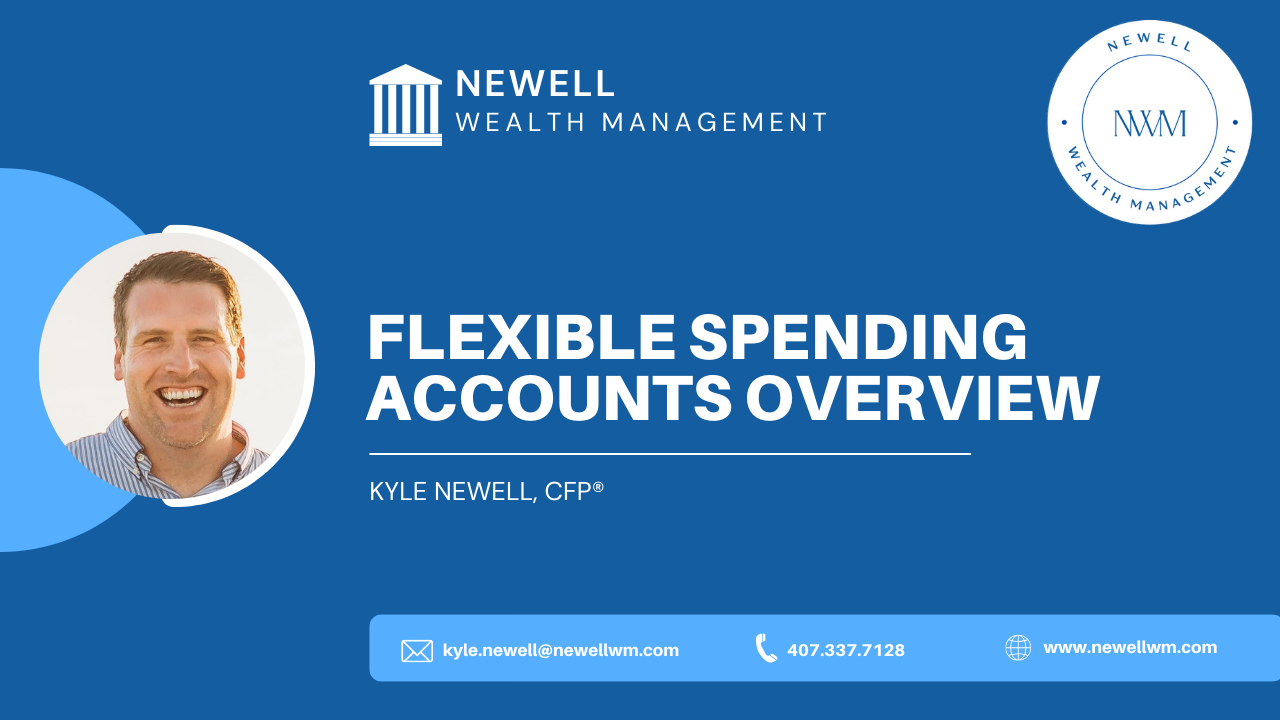3 Things to Know About Flexible Spending Accounts

Flexible Spending Accounts can be a helpful financial tool if you work for a company that offers them. The Walt Disney Company, for example, offers flexible spending accounts for healthcare and childcare.
So, what is a flexible spending account? It’s a pre-tax savings account. One benefit is that you get to save on taxes as you’re putting money into the account. It’s also one of the only vehicles that allows you to save on both income taxes and Social Security and Medicare taxes.
This can lead to a significant amount of tax savings just by putting money into a flexible spending account that you will use to help with your healthcare or childcare expenses throughout the year.

Now that you know the basic idea, there are three things you should know to make the best use of your money within a flexible spending account.
1) Use It or Lose It
It’s vital to remember that flexible spending accounts are set up with a “use it or lose it” structure. If you don’t use the money by the end of the year, then you will lose it. So, you should be careful about how much money you put into a flexible spending account.
Everyone wants to save money on taxes. Nobody wants to lose money. Making a reasonable estimate of how much to contribute is essential. The idea is to use the entire amount by the end of the timeframe.
It’s good to think about this when going through open enrollment. Disney Cast Members typically have open enrollment in late October or early November. This is when you will want to consider potential healthcare and childcare expenses for the following year.
It often helps to keep your healthcare and childcare receipts from the prior year to help you gauge what the next year may bring. Doing so can prevent you from overfunding the account the following year and losing money.
Don’t confuse a healthcare flexible spending account with a Health Savings Account. They are not the same. If you need more clarification on Health Spending Accounts, I discuss it here.
2) Limitations
There are some limitations when it comes to how much money you can put into a flexible spending account.
It’s essential to check the IRS guidelines. For 2023, it’s around $3,000 per person for a healthcare flexible spending account and $5,000 per family for a childcare flexible spending account.
Note that one is per person, and the other is per family. You are not allowed to contribute more than the limit into either type of account, so be sure to know the limits for your situation.
3) Check the List
Ensure that whenever you use your flexible spending account for child or health care, you follow the IRS guidelines on what is considered an approved expense. They have a list to help you determine what’s acceptable to pay with funds from your account.
You’ll see it’s pretty long when you look at the list. For the most part, it includes things that you would expect, like
- Daycare
- Regular visits to the doctor
- Medications
There are also some things you may not expect to be covered but are. It’s good to be familiar with what is and isn’t included to help you estimate your health or childcare spending for the following year.
Remember the Basics
Flexible spending accounts can be a smart way to use your money and save on taxes. Keep these three principles in mind to make it work for you.
- Use it or lose it
- Know the contribution limits
- Check the list of what’s covered
Before your open enrollment period, talk with your financial planner and tax advisor to see how flexible spending accounts apply to your specific situation.
Important Information
Newell Wealth Management, LLC (“NWM”) is a registered investment advisor offering advisory services in the State of FL and in other jurisdictions where exempted. Registration does not imply a certain level of skill or training. The presence of this website on the Internet shall not be directly or indirectly interpreted as a solicitation of investment advisory services to persons of another jurisdiction unless otherwise permitted by statute. Follow-up or individualized responses to consumers in a particular state by NWM in the rendering of personalized investment advice for compensation shall not be made without our first complying with jurisdiction requirements or pursuant to an applicable state exemption.
All written content on this site is for information purposes only and is not intended to provide specific advice or recommendations for any individual. Opinions expressed herein are solely those of NWM, unless otherwise specifically cited. Kyle Newell and NWM are neither an attorney nor an accountant, and no portion of this website content should be interpreted as legal, accounting, or tax advice. Material presented is believed to be from reliable sources, and no representations are made by our firm as to other parties’ informational accuracy or completeness. There is no assurance that the views or strategies discussed are suitable for all investors or will yield positive outcomes. Investment involves risks including possible loss of principal and, unless otherwise stated, are not guaranteed. Any economic forecasts set forth may not develop as predicted and are subject to change. All information or ideas provided should be discussed in detail with an advisor, accountant, or legal counsel prior to implementation.
